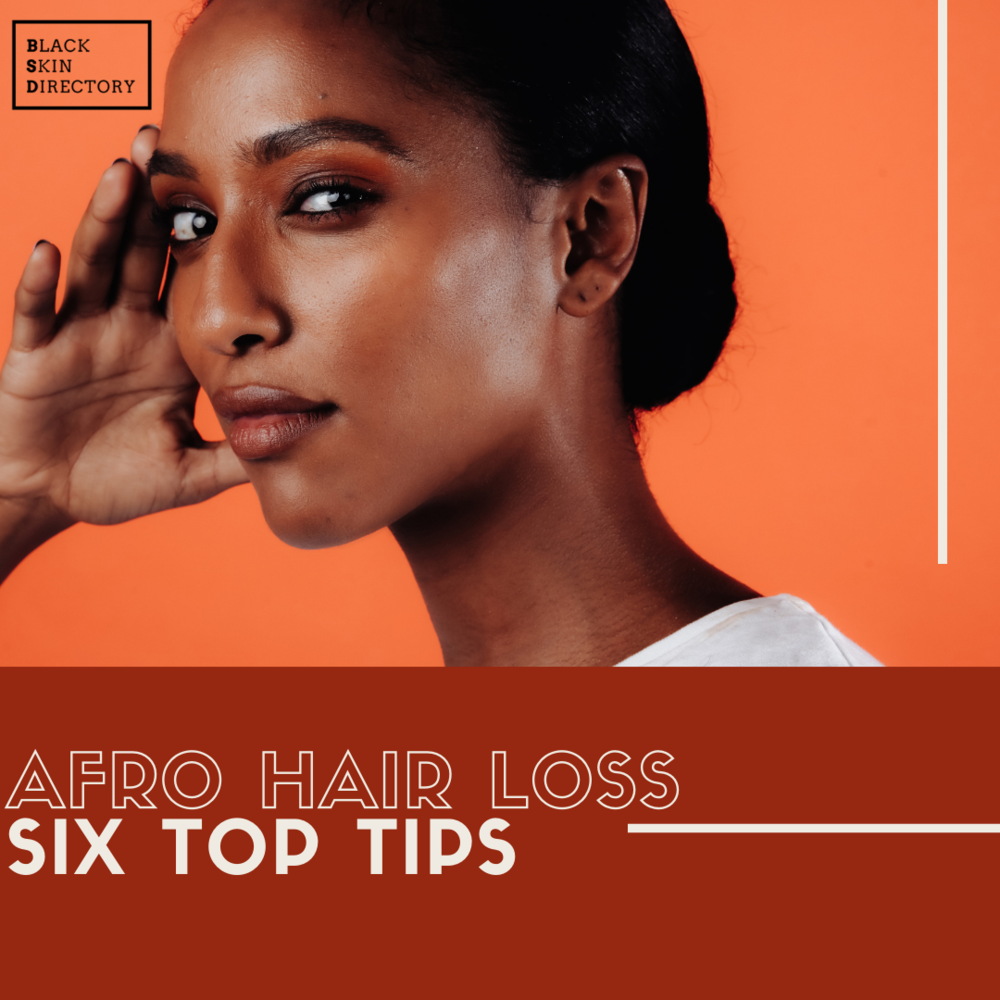Six tips to deal with Afro Hair Loss
Hair loss getting your down? We have 6 top tips to get you organised and finding a solution.
Consider what your general health is like
Hair loss can sometimes be a sign of a problem with your general health. Hormone problems, anaemia, autoimmune conditions such as Lupus can sometimes present as areas of hair loss or hair thinning. You may be experiencing hair loss on other parts of your body or skin rashes.
The first port of call should be your GP and book a specific appointment to discuss your hair loss concerns, don’t tag it on to the back of an unrelated appointment. There have been many times at the end of a consultation when the patient is getting up to leave and then mentions "by the way doctor- I am losing my hair" If this had been mentioned near the beginning of the consultation there would have been more time to conduct an examination, consider whether blood tests are necessary or even a referral to a Dermatologist.
Don’t be afraid to wash your hair
Many people are afraid to wash their hair when they see hair loss because they are afraid that they will lose more hair by washing it. This isn’t the case as hair is already dead when it is on the scalp.
The straighter your hair, the more frequently it needs to be washed because oily sebum from the scalp which lubricates hair is able to travel down the straight hair shaft more easily than a coiled and curled one. In addition, afro-textured hair grows away from the scalp.
Think about your diet and eat well
This is often neglected when it comes to hair. A healthy person grows 1.8 meters of new hair across the whole head per hour so it’s not hard to see that if the body is starved of nutrition this process will slow and affect the quality and quantity of hair.
It is important to remember that the hair cycle begins in the hair follicle, deep under the scalp so the best source of nutrients is always a healthy well-balanced diet. Women are more susceptible to hair loss due to nutrition depletion and hair growth can slow, the will hair shed and will not be as thick and strong. Additionally you hair colour and curl pattern can change.
The good news is that this pattern of hair thinning can be corrected with proper diet or proper additional nutritional supplements. Nutrients can provide excellent qualities to hair which become apparent in approximately six months of consistent use.
If you are a crash dieter, you will often changes in your hair because of your low-calorie intake. Low carbohydrate or low fat / high fibre diet are examples where changes in hair density and hair diameter have been observed.
Don’t take supplements unless you are deficient in specific nutrients
We are bombarded with so many conflicting messages about what foods are good and bad for us.
On top of that, it is hard to ignore the adverts for supplements which claim to be good for your skin, hair and nails. We all want that magic pill which will make our hair grow thicker and longer, but do seek medical opinion prior to taking supplements.
Find a reputable and qualified professional who specialises in Afro hair loss
In our opinion, Trichologists are worth their weight in gold and its important to seek their help quickly and not rely on another professional such as your hair stylist for treatment relating to your hair loss. A culturally aware Trichologist will be aware of not only how to treat your hair and scalp but also manage your emotional expectations around your hair.
Use credible sources of information
Use websites such as the Institute of Trichologists and British Association of Dermatologists www.bad.org.uk for credible online information.
We cannot stress this bonus point enough, please ensure that your check the qualifications of your Trichologist that they are fully qualified to treat and care for your hair and scalp. Don’t be afraid to ask to see their certificates, a real deal Trichologist, will have not problem showing you!
Edited by Nateisha Scott

